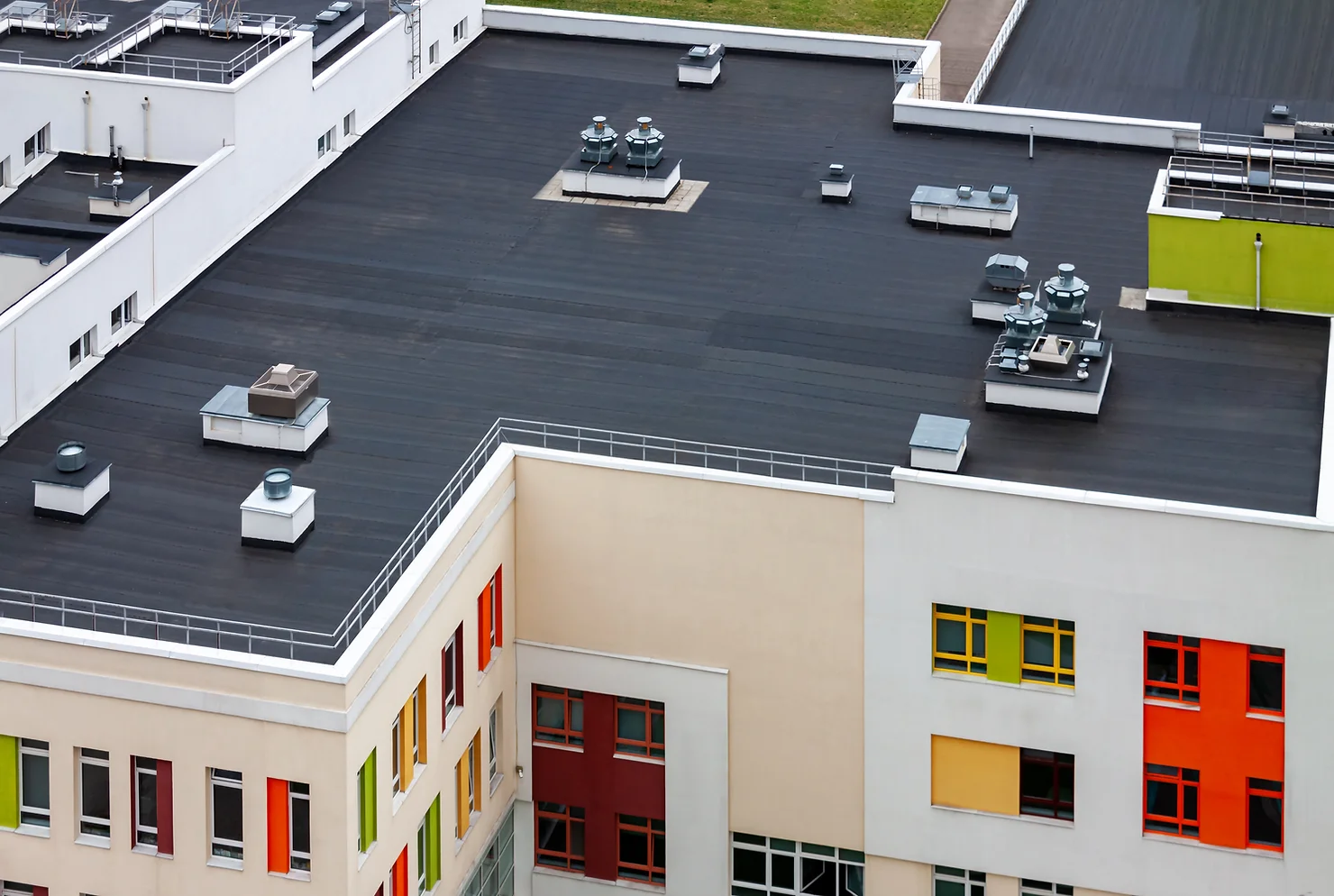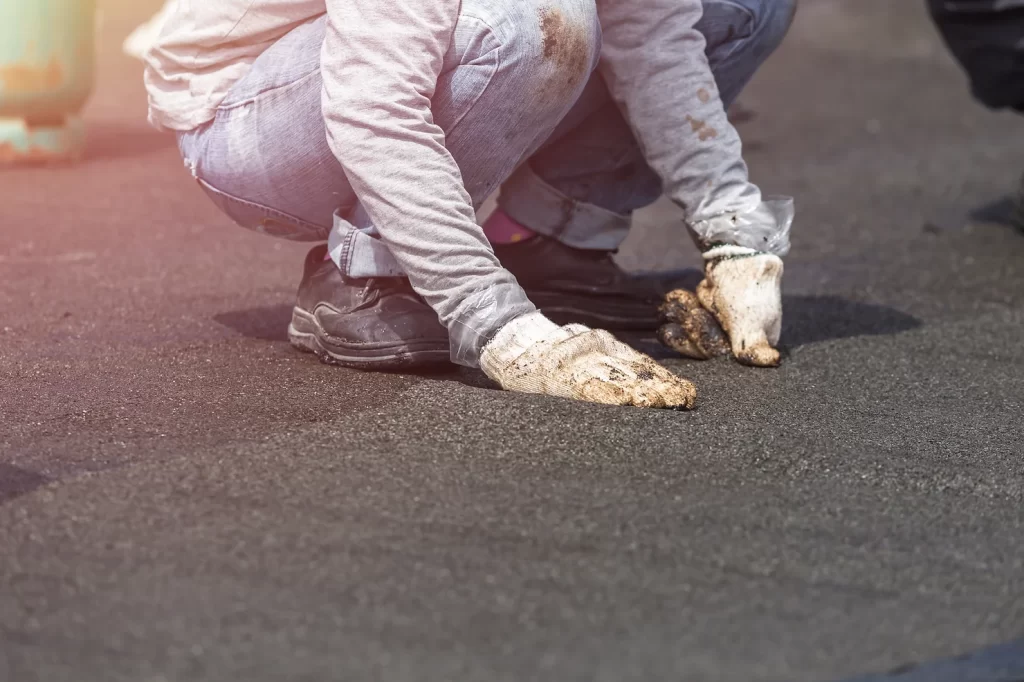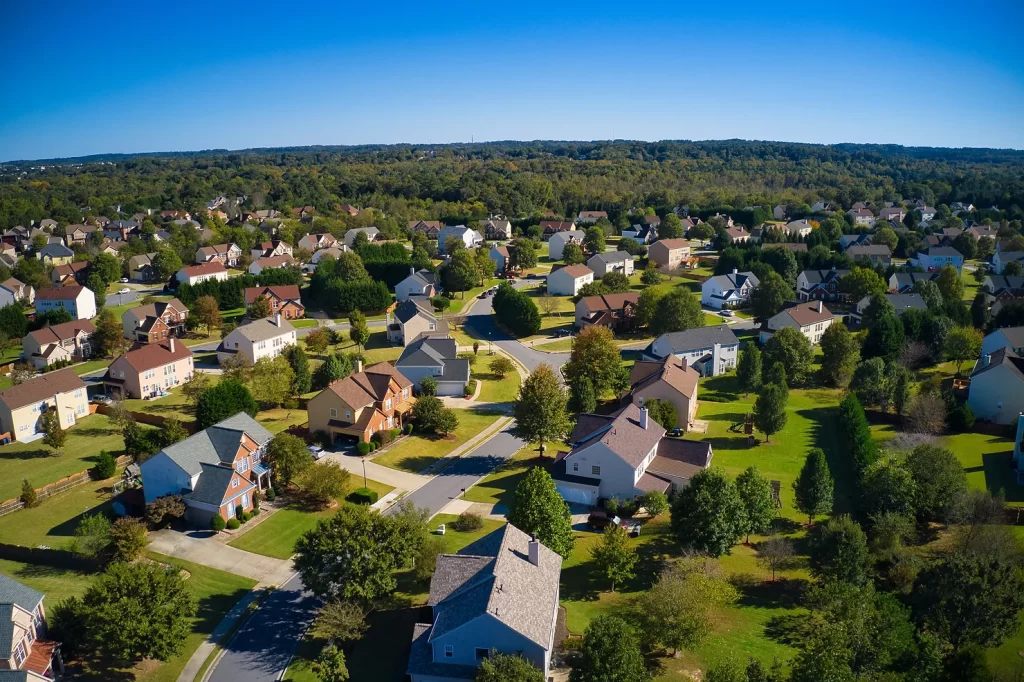
A Guide to Detecting Subtle and Serious Roof Damage Before It’s Too Late
Don't let roof damage go unnoticed. Learn the signs and prevent costly repairs. Protect your home with our expert advice …

Roofing is an important part of any home or business. It protects against water damage and helps keep your building cool in summer and warm in winter. But there are many different types of roofing materials available, each with its own advantages and disadvantages.
There are two main types of roofing: residential and commercial. Each type has its own benefits and drawbacks. Residential roofing refers to roofing for houses and homes. These roofs are typically sloped with asphalt shingles, and they are a lot smaller than commercial roofs. Residential roofs can also come in different colors and designs as they are seen by everyone that passes. Homeowner Associations (HOAs) often regulate how residential roofs can look and the materials permitted.
Commercial roofing refers to roofing for big buildings, like businesses and schools. Commercial roofing is a lot more complicated than residential roofing as it covers a large space and is often flat. The flat nature causes the roof to need more waterproofing materials to deter water damage. Since the flatness of these roofs keep passersby from being able to see them, commercial roofs pay more attention to functionality than appearance. They also need a specialized commercial roofer to install these types of roofing.
Residential roofs are made up of shingles, tiles, and other roofing materials. Asphalt shingles are the most common type of residential material used. They are typically installed by professionals who specialize in roofing. CertainTeed also lists drip edge and hip and ridge shingles as other common types of roofing materials.
Commercial roofs are usually made with metal or concrete. These roofs are more durable than residential ones because they are designed to withstand heavy winds and snow loads. Commercial buildings also often store mechanical equipment on the roof, such as AC, which means these roofs need to be able to withstand a lot of weight. A commercial roofer will be able to determine how much weight a roof can handle.

Residential roofs have a fairly straightforward installation process. It involves laying down underlayment, installing a drip edge, and nailing new shingles into place. Modernize goes through each step in the installation process in detail. Although this process seems easy, it is always best to have a professional Roofing and Exterior Services Company install your roof as they will be trained on how to do the work safely.
There are several different ways to install a new commercial roof, and IKO covers them all. One of the most common methods is called “single ply membrane” installation. This method involves applying a thin layer of material (usually asphalt) directly onto the top of the roof deck. It is then covered with a protective layer of felt paper. This is a popular type of commercial roofing system due to the consistency in quality and durability, but it is important to hire a commercial roofer to accomplish this job correctly.
Ethylene Propylene Diene Monomer, or EPDM, is one type of single ply roofing. It offers durability against the sun's harmful rays. Thermoplastic Polyolefins, or TPO, is another type of single ply roofing. Its popularity comes from the value and durability of this roofing system.
Built-up roofing, or BUR, is one common method of roofing. Asphalt and roofing felts are alternated in layers and reinforced to form a durable membrane. These types of roofs have a long life cycle and are highly resistant to damage.
Whether it is residential or commercial roofing, experience is not necessary when first starting out. Roofing classes are offered to anyone interested in roofing. However, residential roofing is a lot different from commercial roofing. When hiring a commercial roofer, make sure to check that they are certified for your roofing job.
Residential roofing is a lot easier than commercial roofing. There are less roofing materials and the job goes by a lot quicker. The hardest part of the job will be the height, but with proper safety gear, roofing is an easily accomplished task.
On the other hand, commercial roofing has a long and complicated installation process. A commercial roofer will need extra training to become certified. There are many different ways in which a commercial roof can be installed, and it includes using heavy equipment that can be dangerous if not handled properly.
It is recommended that residential roofs should have an inspection a couple times a year. The small width and sloped sides of a roof make it easier to spot roof damage from the ground. However, it is not always obvious. Regular inspections will help keep track of your roof’s health and prevent water damage to your home.
A commercial roof system requires more maintenance than a residential roof system because of its size and weight. Commercial roofs must be inspected regularly to ensure that they are not leaking. They also need to be repaired when necessary. Roof damage to a commercial roof can be a lot more serious than residential roof damage. This is because there is a lot more to damage with water inside a commercial building.
Whether you have a residential or a commercial roof, you should always have an inspection after a storm. Even with the layers and precautions taken for commercial roofs, storm damage can still occur. If the roof membrane is punctured, then water can easily enter the roof and cause water damage.

No matter your roofing needs, a professional Roofing and Exterior Services Company will be able to assist you. Do your research on companies to find out who is certified for residential roofing or commercial roofing, depending on your project. It is common for professional roofing companies to be certified in both types of roofing.
Lifetime Quality does both residential and commercial roofing in Columbus, OH, Cincinnati, OH, Pittsburgh, PA, Dallas, TX, and Tampa, FL. Our expert team is ready to help with all roofing projects, big or small. Call us today at 614-407-7663 for a 100% free roof inspection!